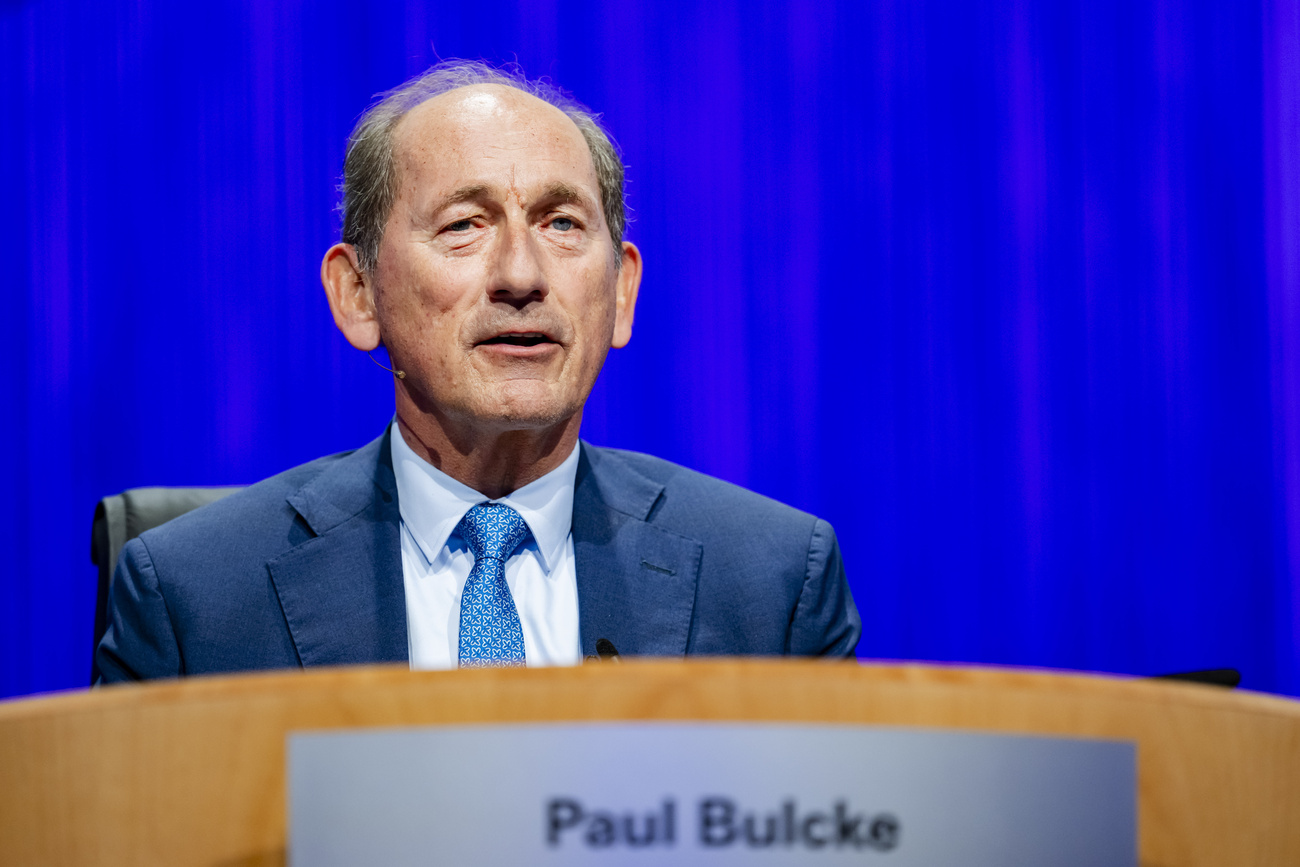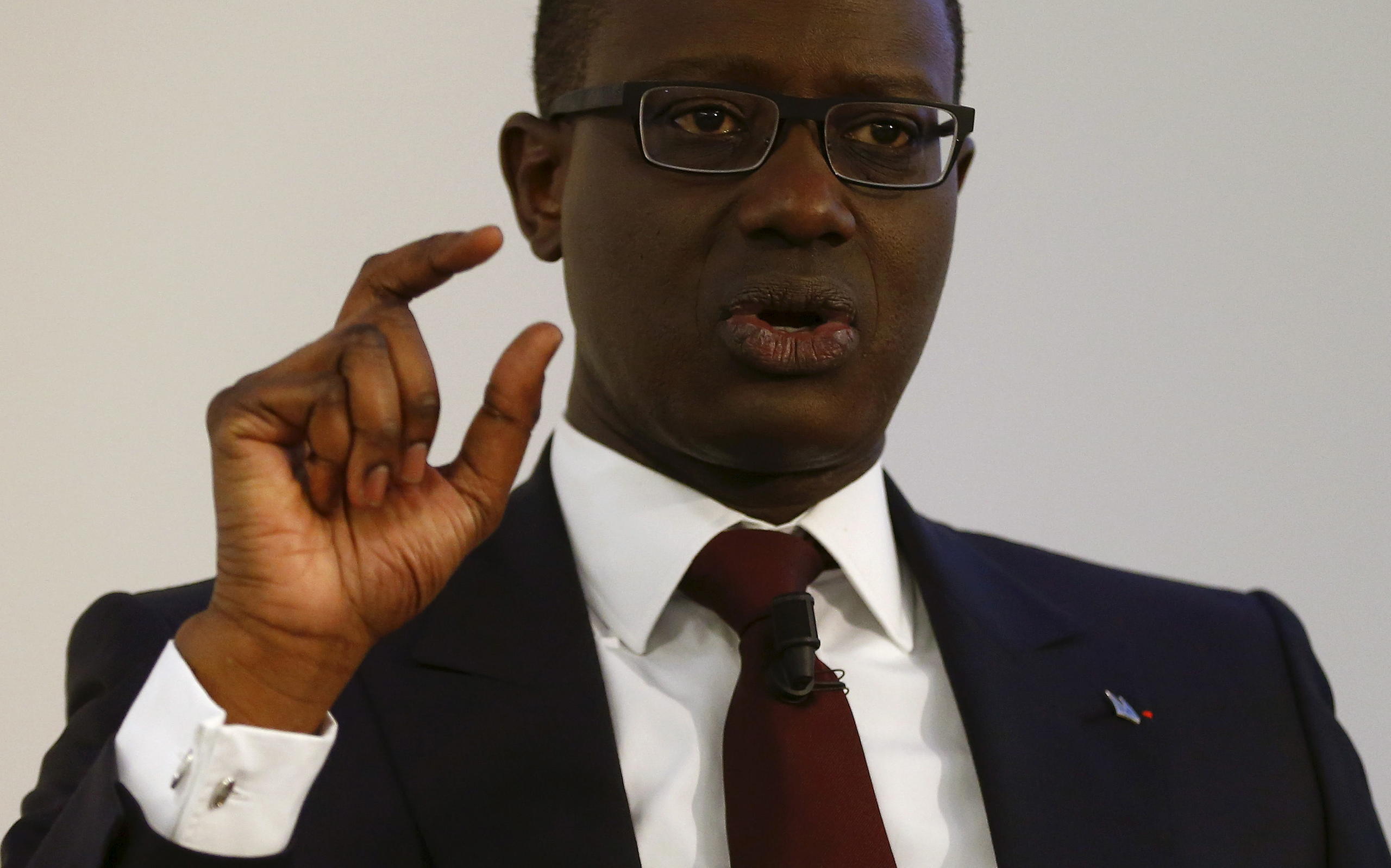
The meltdown at Nestlé

Nestlé’s annual “All In” all-company meeting on Wednesday was an awkward one. The famously buttoned-down Swiss conglomerate has been beset by scandal that in just two weeks has unseated both its chief executive and chair.
Yet when outgoing chair Paul Bulcke spoke virtually to up to 277,000 Nestlé workers, 24 hours after the company announced he would be leaving early, he was in characteristically bullish form.
“He tried to sound cheerful, like it was not all a big deal,” one employee says. “He said I’ve decided to leave because the future is now . . . No one believed a word of it.”

The revelation that boss of one year Laurent Freixe was conducting an undisclosed affair with a direct report has rocked a 159-year-old conglomerate that pioneered infant formula and milk chocolate before growing to become the world’s largest food and beverage company. It now has thousands of brands ranging from KitKat chocolate bars to Maggi stock cubes and Purina pet food under its umbrella.
The handling of the saga by Nestlé’s board has appalled the Swiss corporate establishment. As one of the largest companies on the Swiss stock exchange, with a bigger market capitalisation than the country’s largest bank, UBS, Nestlé has long been placed on a pedestal on its home turf.

More
Nestlé remains the most valuable Swiss brand
“Nestlé is a symbol. It is a Swiss symbol. That explains some of the shock,” says Arturo Bris, director of the IMD World Competitiveness Centre. “Swiss society has always been very conservative with this type of thing. We don’t show our wealth like Ferraris and similarly this privacy extends to personal relationships.”
Investors meanwhile, already frustrated by a period of underperformance, are asking probing questions about Nestlé’s governance. They say a cosy corporate culture that prioritises consensus over scrutiny has resulted in lengthy board tenures and a degree of inertia compared with global consumer goods rivals such as Unilever or Kraft Heinz, both of which are taking more radical action to increase focus on core brands and improve returns.
A new management pair – with Philipp Navratil, Nespresso boss, as chief executive, and Pablo Isla, former head of Zara-owner Inditex, as chair – might reassure some.
But many say things cannot go on as they were. Nestlé’s share price has plummeted from CHF120 ($150) in 2022 to just over CHF70 today. Sales growth has slumped from post-Covid highs as inflation-weary consumers have pushed back on soaring prices. The group’s net debt has almost doubled since 2020.
Nestlé’s turmoil speaks to a broader global reckoning with the multinational conglomerate model. For more than a decade, sprawling empires across sectors – from consumer goods peers Unilever and Procter & Gamble to tech conglomerates like General Electric, Siemens and Toshiba – have been forced to slim down or break apart under shareholder pressure.
The logic is the same: markets increasingly doubt that any management team can deliver sustained performance across wildly different businesses. Switzerland’s national champion has until now resisted that logic, clinging to its big-tent identity as the world’s largest food group with over a quarter of a million employees and factories in 75 countries.
“[The] question is, is it just too big?” says Jefferies analyst David Hayes. “Is there physically a limit to how much an organisation can control what’s going on?”
Backdrop of low morale
Throughout a balmy Swiss summer, rumours flew around Nestlé’s imposing headquarters on the shores of Lake Geneva about Freixe’s love life.
Indignant employees complained through the group’s whistleblower channel – “Speak up” – about the company lifer’s alleged preferential treatment of a colleague they suspected to be his mistress.

More
Whistleblowing platform led to dismissal of Nestlé CEO
Management decided it was time to investigate. But when confronted, the 63-year-old denied the allegations outright, according to people familiar with the matter. In the end the board concluded the rumours were unsubstantiated.
The complaints arose against a backdrop of low morale, after a turbulent couple of years at the company.
Freixe had been appointed in August last year to replace Mark Schneider, a former healthcare boss who had attempted to reinvigorate Nestlé’s fortunes with new product lines in the health and fitness supplements space, but oversaw slowing growth in the latter half of his seven years as CEO.
Schneider, the first outsider to run Nestlé in a century, had an at times abrasive management style that clashed with the company’s consensus-driven culture, employees say.
Freixe marked a direct contrast: a company veteran of almost four decades seen to embody Nestlé’s values and who promised to reinvest in unloved brands.
To steady the ship, Freixe was implementing an ambitious plan to cut costs by at least CHF2.5 billion, with the help of consultants like McKinsey. Staff were nervous about potential job cuts.
As the summer wore on and gossip was stoked by a string of salacious reports in Swiss finance blog Inside Paradeplatz, complaints persisted. The board kicked off a second investigation, this time employing external counsel.
That’s where it went badly – the board was informed about what was going on and didn’t react early enough
The relationship between Freixe and his subordinate was an “open secret” in the company’s management, current and former Nestlé executives tell the FT. Freixe had also met his wife at Nestlé, though she had not been in his reporting line.
The fact this latest relationship took two separate investigations to uncover raised suspicions among shareholders that Bulcke mishandled the probe. In the ensuing days they piled pressure on the company to address any governance oversights.
Speaking to the FT last week, some shareholders criticised Bulcke, arguing he should have resigned when he sacked Schneider last summer.
Investors had been unhappy with the former CEO but say Bulcke’s oversight was insufficient. “You should have had the board as a counterweight to Schneider,” says Vontobel analyst Jean-Philippe Bertschy. “And that’s where it went badly – the board was informed about what was going on and didn’t react early enough.”
Yet even if the board had wanted to oust Bulcke, changes to Swiss law would have made it difficult.
The Swiss “Minder Initiative”, passed in 2013, stripped boards of listed companies of the power to appoint or dismiss their own chair. A 2020 company law reform confirmed that only shareholders can hire or fire directors and the chair, with no automatic renewal of mandates.
This complicated chair succession planning, says one Nestlé insider.

More
Executive pay rises despite law change
At the company’s annual general meeting this April, Bulcke was reappointed to the board, but against growing opposition from shareholders. In June, Nestlé announced that Bulcke would not stand for re-election at the next meeting, naming vice-chair Isla as his successor.
“This created a situation where Pablo Isla was named as the future chairman but could not act,” says the insider.
When the scandal surrounding Freixe’s relationship broke, and investors started to raise doubts, Bulcke stepped aside, according to two people familiar with the matter.
As Bulcke’s departure was announced on Tuesday evening, he was given the title of honorary chair.
New formula?
The corporate saga may be an inflection point for Nestlé, and consequently the wider consumer goods sector.
Over the past few days, investors, analysts and company advisers have been locked in discussions as to what a new Nestlé should look like.
One school of thought goes that the company should slim down, selling off slower-growing categories like confectionery and frozen food, or parts of the business that do not fit the portfolio – such as skin health, or the company’s sizeable stake in beauty behemoth L’Oréal.
The formula follows one that is now well played out in the consumer goods industry. Multinationals from Unilever to Reckitt and Danone have all shed categories to form more focused, faster-growing portfolios.
Freixe, with Bulcke’s support, resisted the trend. The departing chief executive believed in the merits of being the biggest food and beverage company in the world – present in as many households around the world as possible. “I don’t see the merits in being small, honestly,” he told the FT in May.
Now the old guard is gone, commentators wonder if Nestlé will finally follow the herd. “Under a new leadership duo, important decisions must now be made as quickly as possible,” says Kai Lehmann, senior analyst at Flossbach von Storch, a top-30 Nestlé shareholder, urging a “ruthless analysis of the long-term growth prospects of the individual categories”. Vontobel’s Bertschy says Isla’s priorities might include disposing of non-core and underperforming assets, as well as reshuffling the board “after years of poor corporate governance”.
But others point to a company culture that embraced continuity over change, saying Nestlé’s habit of promoting its chief executives to the chair role weakens independence and fosters conservative attitudes.
“People can become too close, as [appeared] to be the situation between the CEO and chairman,” says Valentin Jentsch, an assistant professor of corporate law at University of St Gallen. “Having new people mitigates these kinds of issues.”
That approach has now changed; Isla, the new chair, built his career outside the sector, having spent 17 years as CEO and executive chair of Inditex. Navratil, meanwhile, is a relative unknown within the business.
But a person familiar with both says the 49-year-old Navratil will bring a more “entrepreneurial spirit” and “agile mentality” to the business. With Isla in place as the first independent chair since 2005, Nestlé’s corporate governance is “in good shape”, they say.
At the “All In” meeting on Wednesday, newly anointed Navratil addressed staff after Bulcke. Pointedly, he introduced himself as a family man who believed in transparency.
Nestlé was a family, he said, and family is what is needed to get through trying times.
Copyright The Financial Times Limited 2025

In compliance with the JTI standards
More: SWI swissinfo.ch certified by the Journalism Trust Initiative




























You can find an overview of ongoing debates with our journalists here . Please join us!
If you want to start a conversation about a topic raised in this article or want to report factual errors, email us at english@swissinfo.ch.